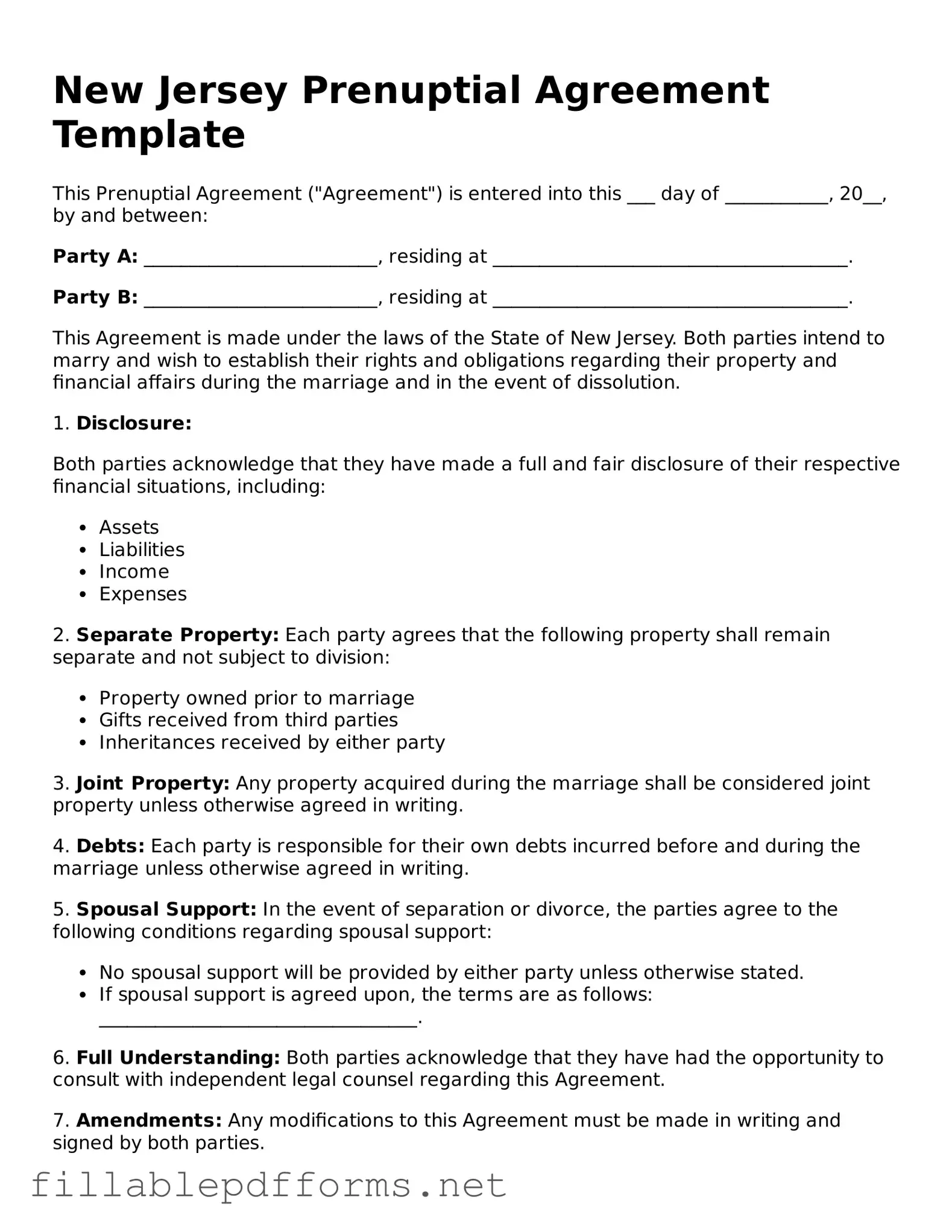Attorney-Verified Prenuptial Agreement Form for New Jersey State
A Prenuptial Agreement form is a legal document created by two individuals before they marry, outlining the distribution of assets and responsibilities in the event of divorce or separation. In New Jersey, this form serves to protect both parties' interests and clarify financial matters. Understanding its components is essential for anyone considering marriage in the state.
Launch Editor Here

Attorney-Verified Prenuptial Agreement Form for New Jersey State
Launch Editor Here

Launch Editor Here
or
▼ Prenuptial Agreement PDF
Almost there — finish the form
Complete Prenuptial Agreement online fast — no printing, no scanning.